Team Desert Patrol has crossed the finish line

We are greeted by music and dance, free drinks and sandwiches, and a long list of speakers.

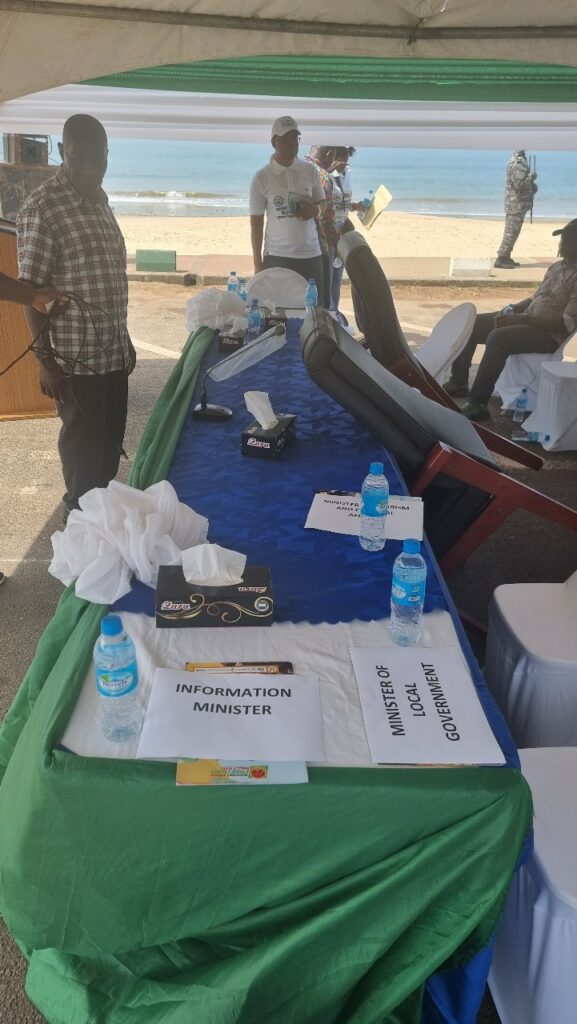
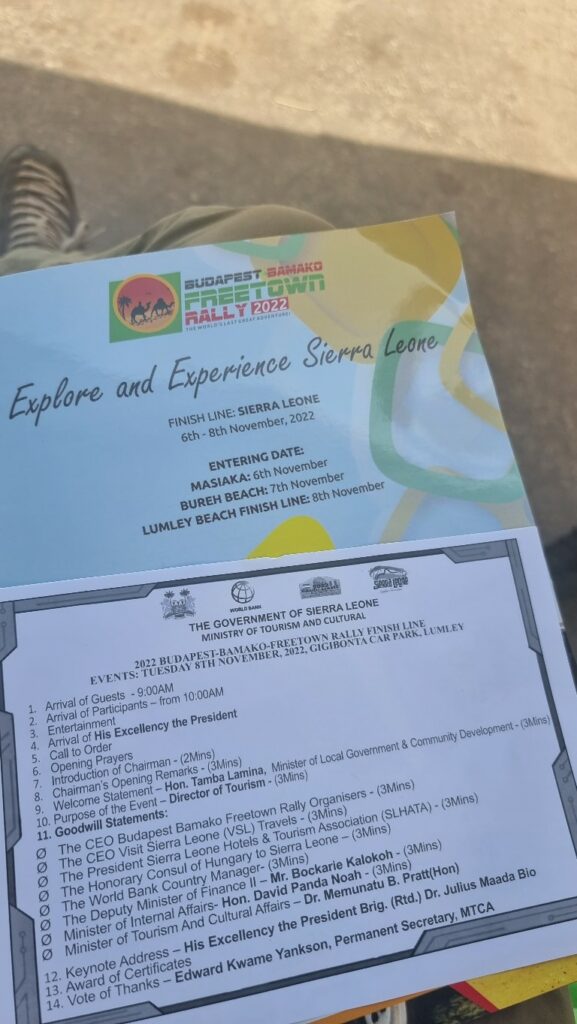

We are greeted by music and dance, free drinks and sandwiches, and a long list of speakers.



The last real stage, tomorrow we’ll be escorted by the police to Freetown’s biggest stadium, the road will be closed for our big convoy.
I thought the stage today would be an easy closing one, but was positively surprised. We had narrow donkey paths, river crossings (one too deep for us) and dense forests.
A very nice closing of a great competition.
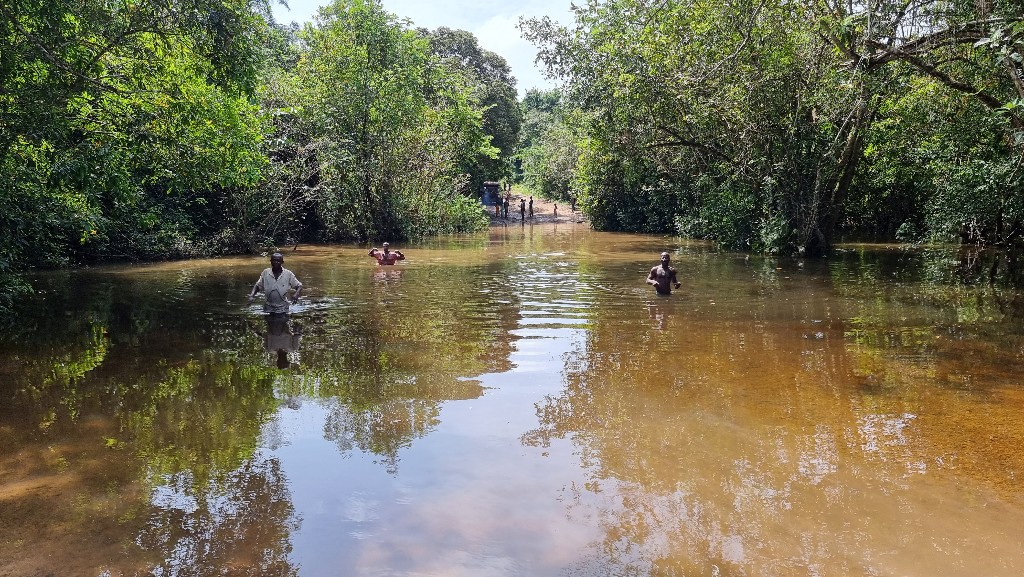
That’s where we had to turn around, 1.3 meters were too much for our car without snorkel…
We crossed the border to Sierra Leone today, but there is not too much difference.
The notable differences are:
– the official language is English, but a pretty strange one (Tenke: Thank you, How da body?: how are you?) and meanwhile I understand as much of West African French as of Sierra Leonean English.
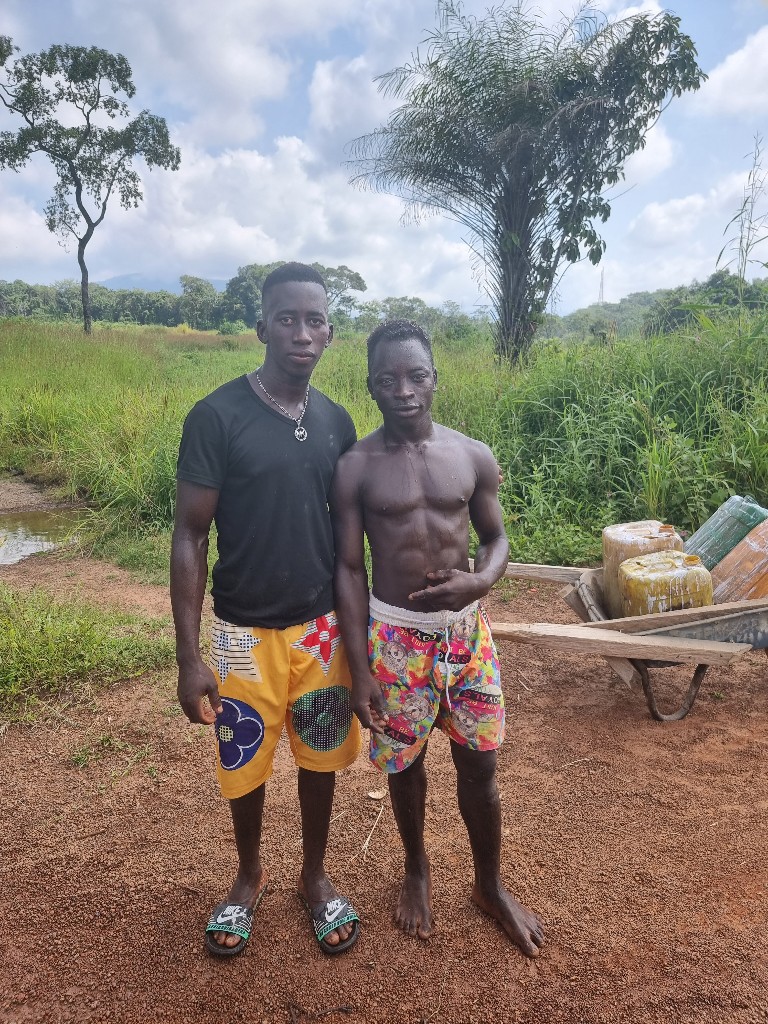
– there is a different currency, one Leone is worth approximately 0.000069EUR, one Guinean Frank almost twice as much, 0.00013EUR.
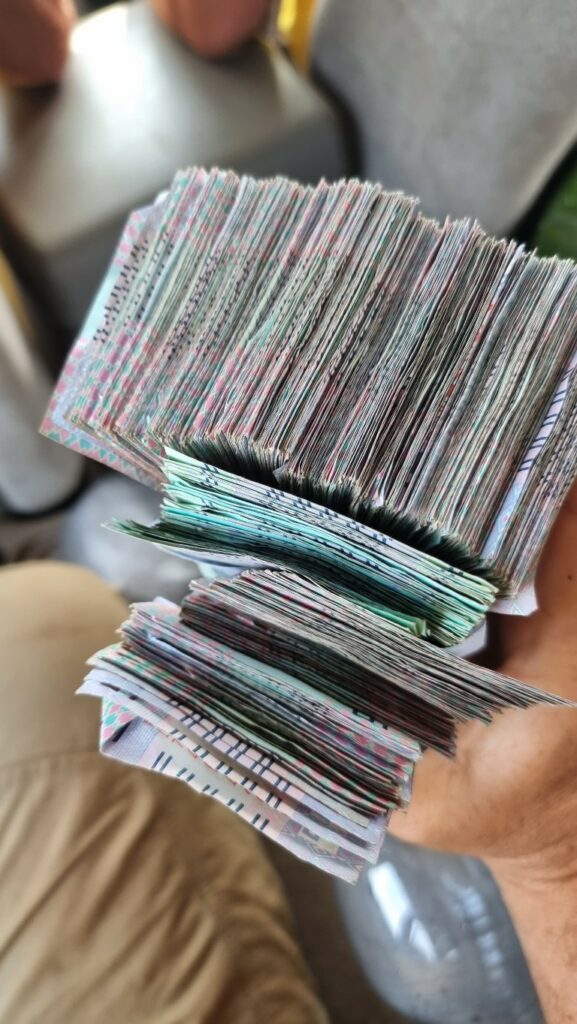
– Guinea got the higher mountains, but SL the higher grass (sometimes you are driving in two and a half meters high grass, you couldn’t see any mountains even if some were there)
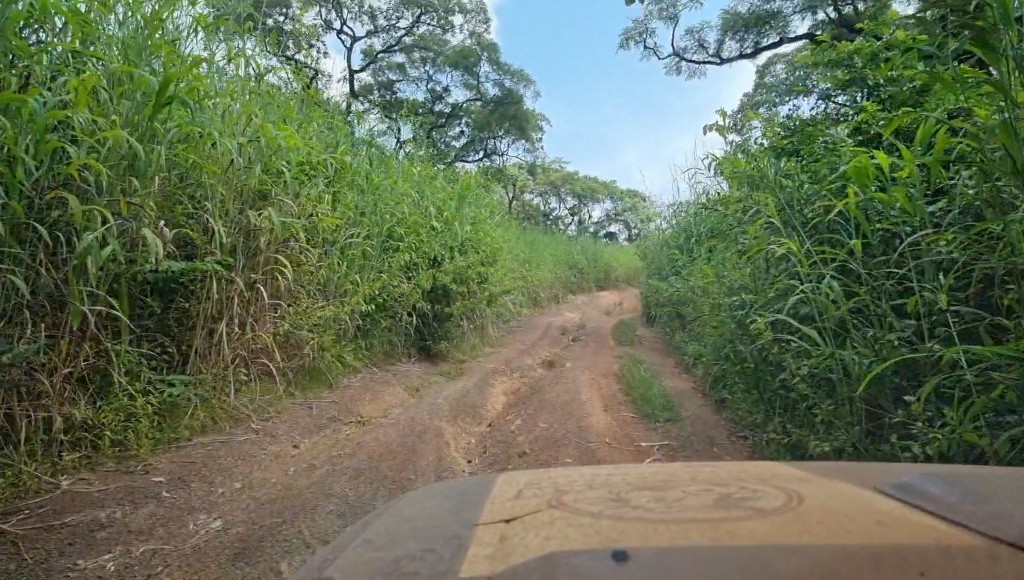
– and finally the biggest one, SL has better roads. In fact the roads are great, from the border on we were driving on nice gravel roads (some of them 20m wide like the Autobahn) and in the middle of the country where we are now, even tarmac.
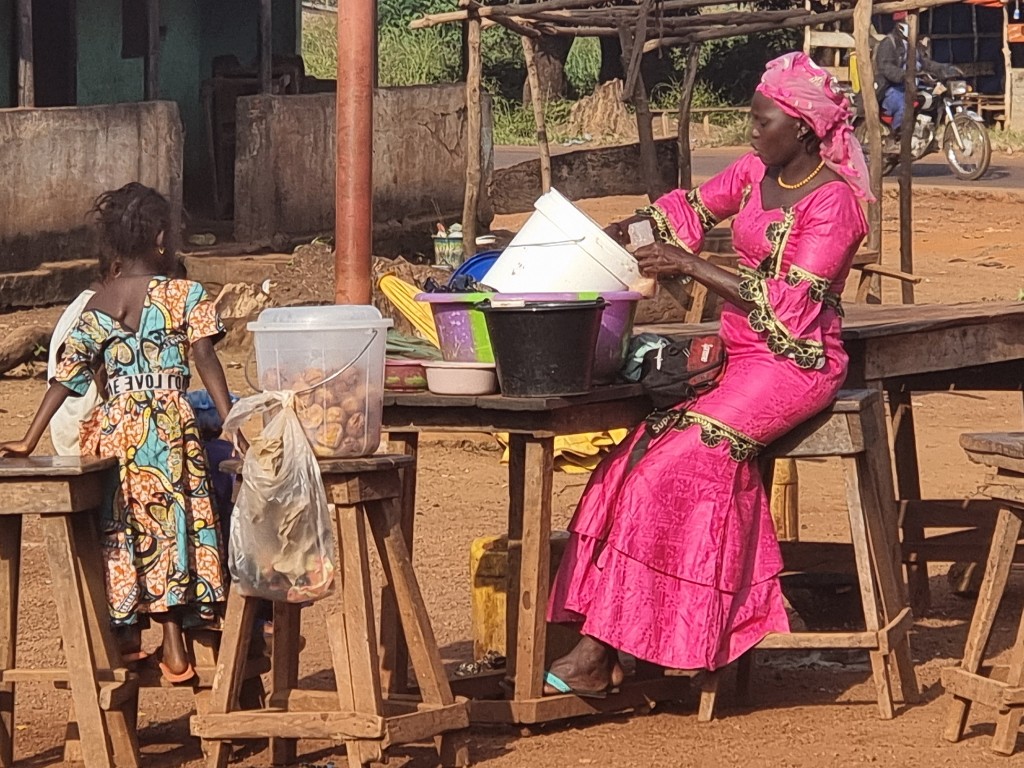
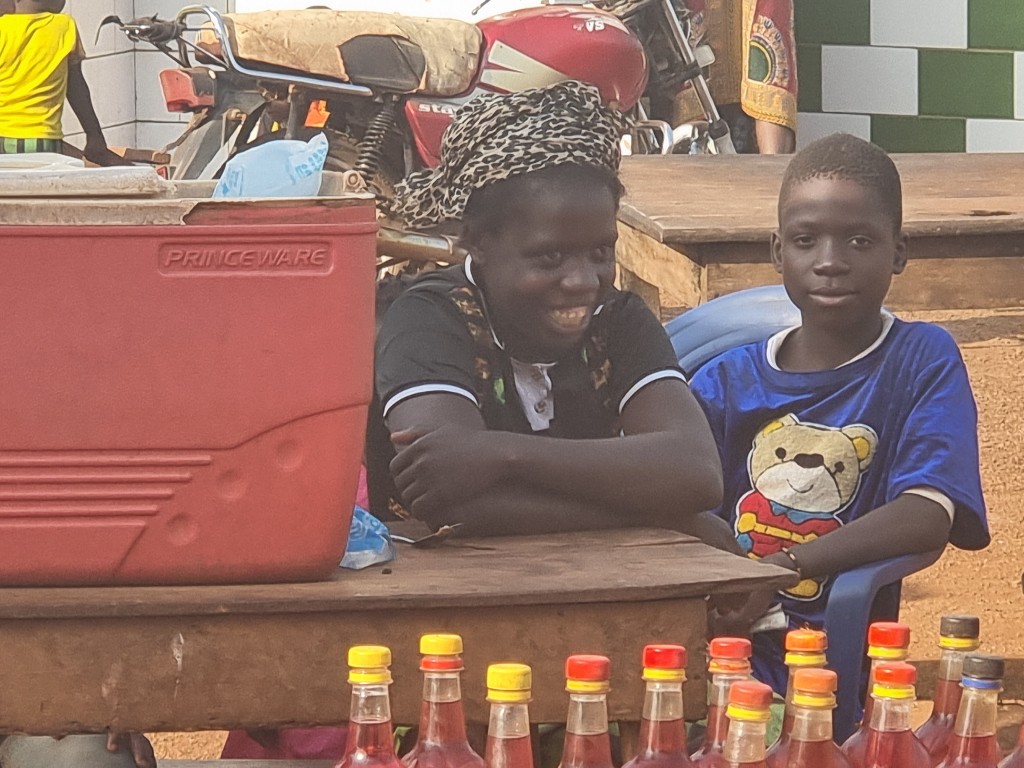
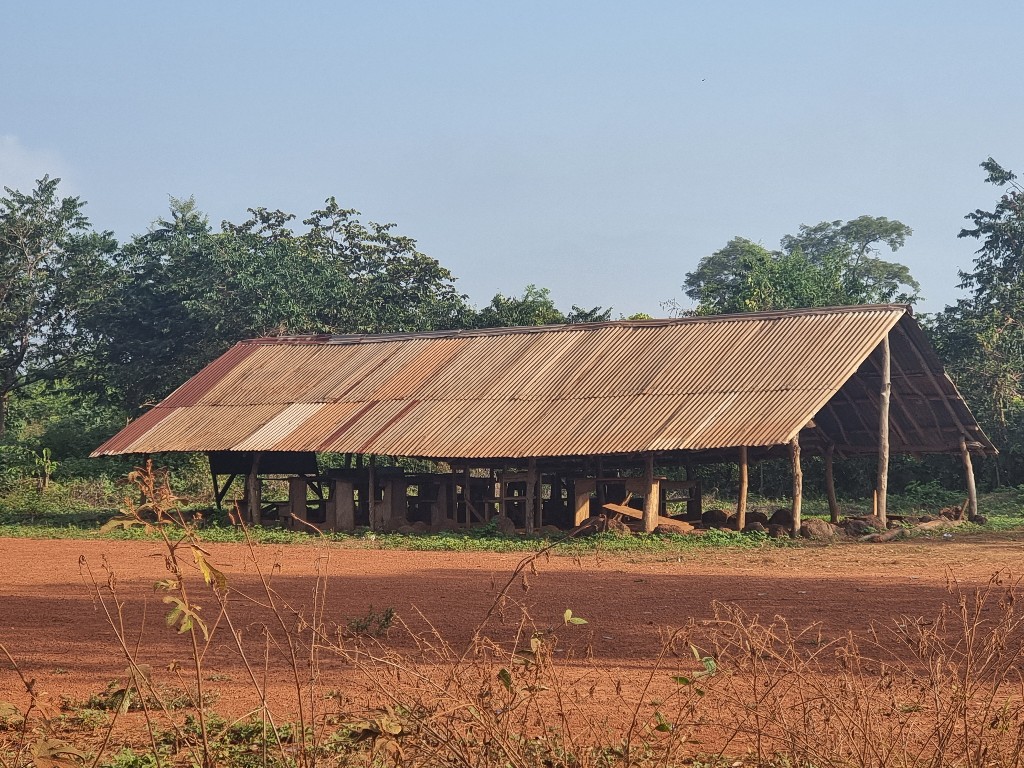
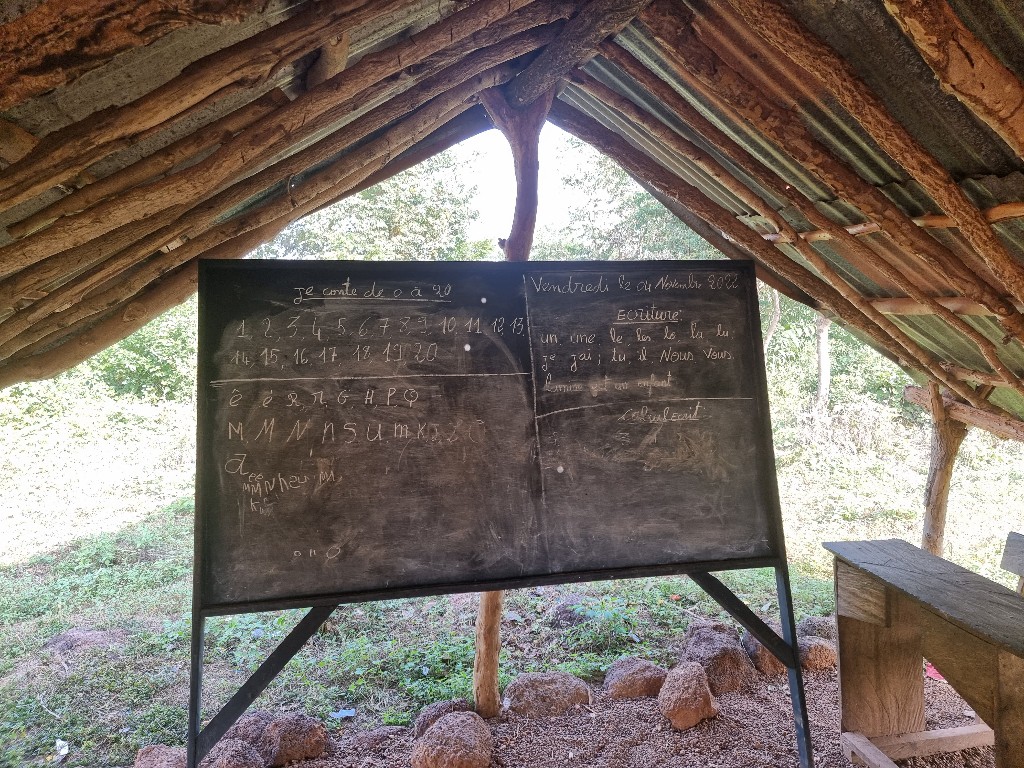
We started the day with some challenges still on the Guinean side (had to find a night club for instance) and then crossed the border. Not without some confusion. First the Guinean border guards didn’t want to let us out because our permits did not specify the border crossing explicitly. The situation was quickly resolved when the mayor of the town realized he would soon be blessed with a few hundred European refugees stuck in his town.
At the border post on the Sierra Leone side nobody knew about us coming and about our centrally organized and pre-paid visas. Some of the teams paid for their visas again, I could convince the guy that he would have to repay the 80EUR per person if it turned out I was right. We managed to get our passports stamped without paying again. (A few minutes later a motorcycle courier arrived and rushed into the border post with a huge pile of paper, our visas.)
One thing you can’t miss in Sierra Leone are the many shot/burnt/destroyed leftover jeeps from the civil war. One of our tasks was to find one of them by its license number. Most of them don’t have license plates anymore, but the windscreens carrying stickers with the license no are sometimes still in place, or if not, can be found nearby. We checked at least 100 vehicles in many villages, climbed on fences to peek into private gardens (scrap metal is valuable, some of the cars end up behind the fence), and asked local boys for help. No success. Our car must have been dismantled in the meantime.
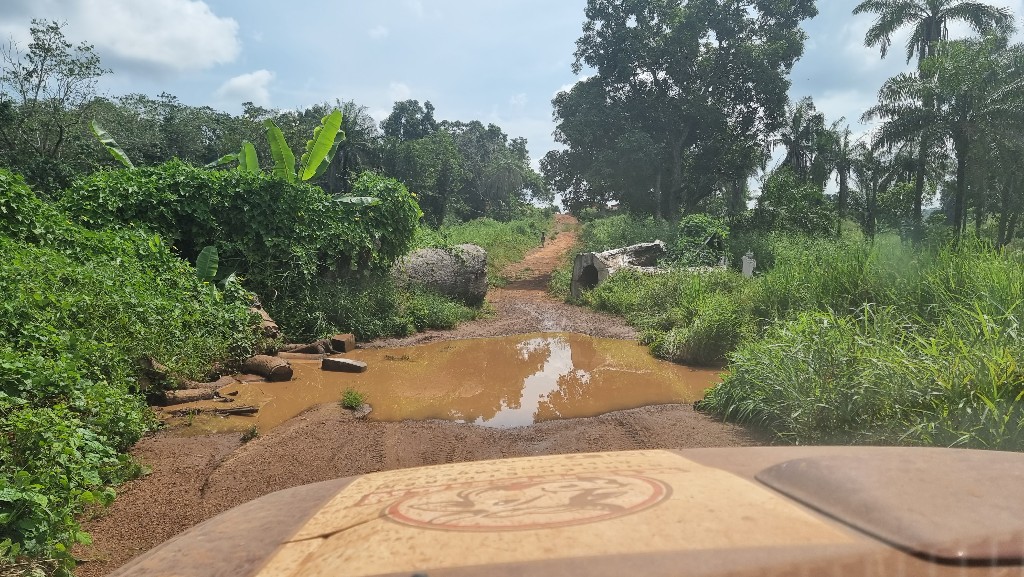
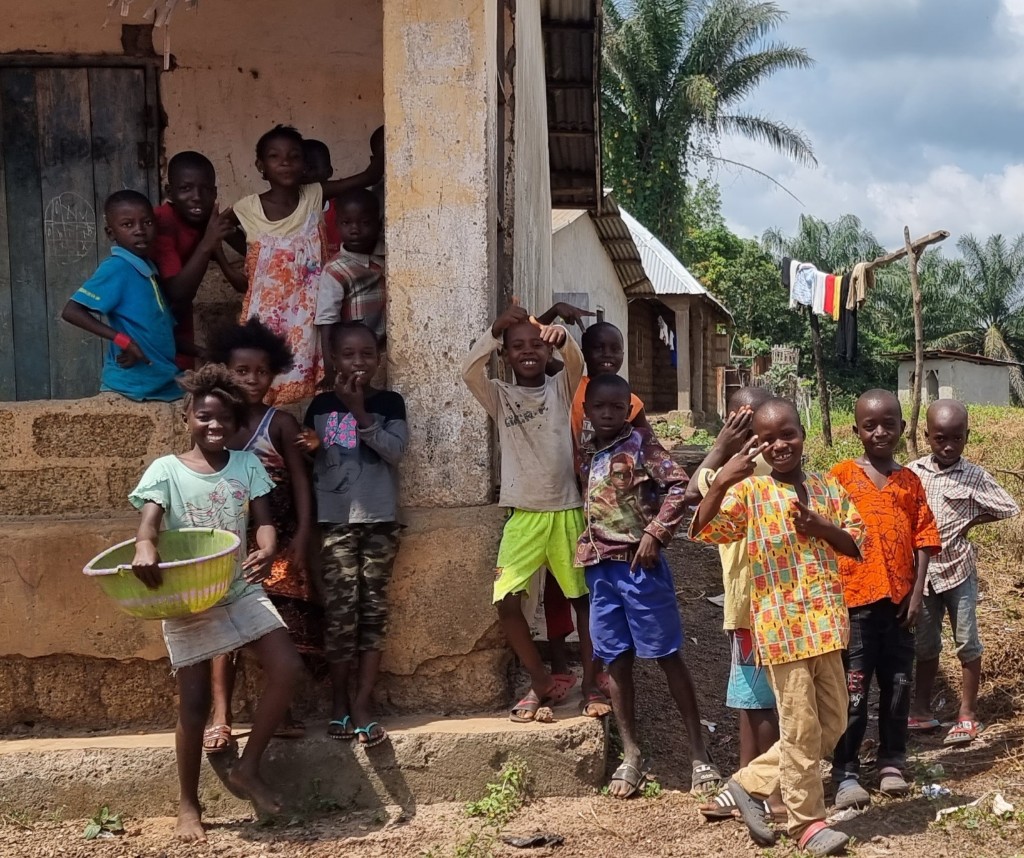
Because of this two hour exercise we were one of the last cars to arrive at the hand operated ferry across the river Little Scarcies. There I was called Arschloch (asshole) by a Swiss gentleman who did not read the roadbook and did not attend the morning briefing today, otherwise he would have known that competition category cars were allowed to pass the long queue. In exchange for that privilege we had to work hard on the ferry, the points at that challenge were given to us by the other teams whose cars we pulled across the river. To my big surprise the guys working there don’t ask for amy money, they are working hard for small tips only. If I had read the roadbook, we would have taken some work gloves for them, but these days not only the Swiss are ignorant, but the Austrians too…
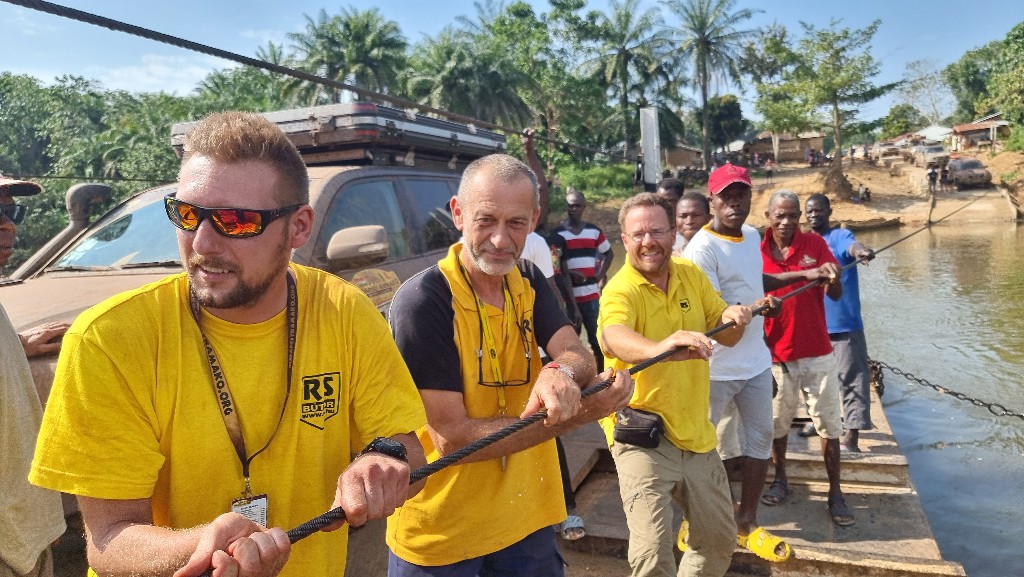
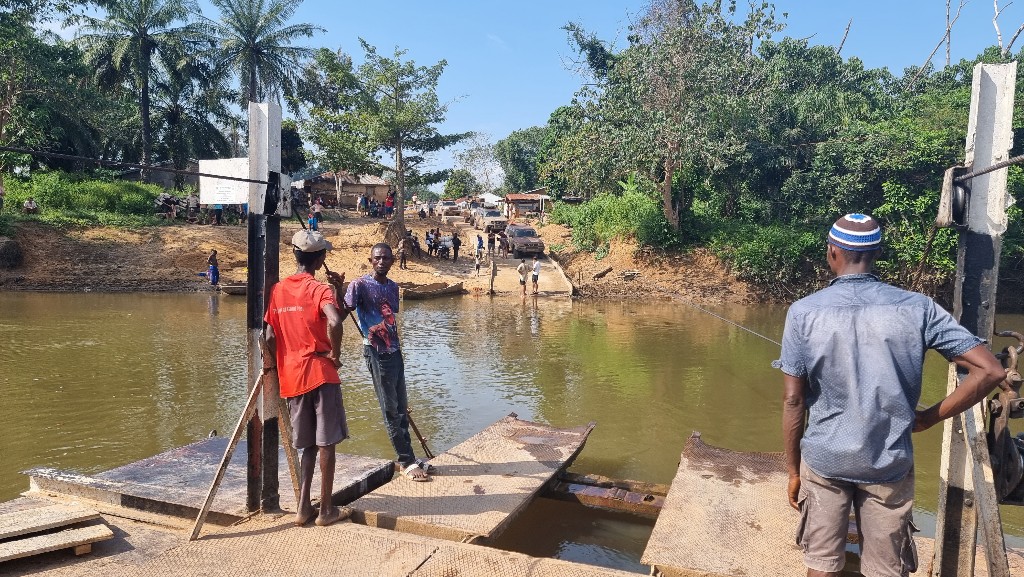
The last part of the stage was along newly built big gravel highways which would have taken us to the camp in two hours, if there weren’t strict speed limits in the competition (25km/h on unpaved roads in villages, 90km/h in general). Sierra Leone has many villages, and they are surprisingly long, many of them comprising only one row of houses along the road. As a result it was again dark when we arrived at the camp. There are many stalls selling food, drinks and cheap souvenirs, and loud music playing.